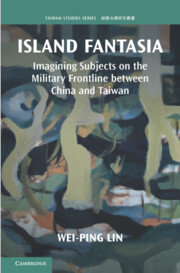General Editors (in alphabetical order): Wei-Ping Lin, National Taiwan University (Anthropology); Richard Madsen, UC San Diego (Sociology); Michael Szonyi, Harvard University (History); Tay-Sheng Wang, National Taiwan University (Law)
Advisory Board (in alphabetical order): Yu-Tzung Chang, National Taiwan University (Political Science); Jo-Shui Chen, National Taiwan University (History); Sean Cooney, University of Melbourne (Law); Tom Ginsburg, University of Chicago (Law); Ming-Jen Lin, National Taiwan University (Economics); John Shephard, University of Virginia (History); Gwo-Shyong Shieh, Academia Sinica, Taiwan (Sociology); Hans H. Tung, National Taiwan University (Political Science); Robert Weller, Boston University (Anthropology); Joseph Wong, University of Toronto (Political Science); Noam Yuchtman, London School of Economics (Economics)
Located in the heart of Asia, Taiwan has always been a critical node for a variety of historical forces and a treasury of humanities and social sciences research. Its economic development during the 1970s and 1980s was described as a “miracle” by the World Bank, and it quickly became a focus of research in the academic world.
However, the important transitions that Taiwan has subsequently undergone have not received sufficient scholarly attention. The establishment of this Taiwan Studies Series by Cambridge University Press aims to fill this gap by providing quality publications based on solid research and academic insights that can also make significant contributions to the literature in both the humanities and social sciences.
The series presents a nuanced and close-to-the-ground analysis of Taiwan, a critical node in US-China-Japan competition in the Asia-Pacific region. It studies the island’s social complexities and transitions from the geopolitical perspective while also focusing closely on the lives and cultural vibrancy of its people. It is both timely and refreshing.
It will feature books authored by established and mid-career scholars from many disciplinary orientations including economics, law, history, political science, organization studies, public administration and management, sociology and anthropology, among many others.

